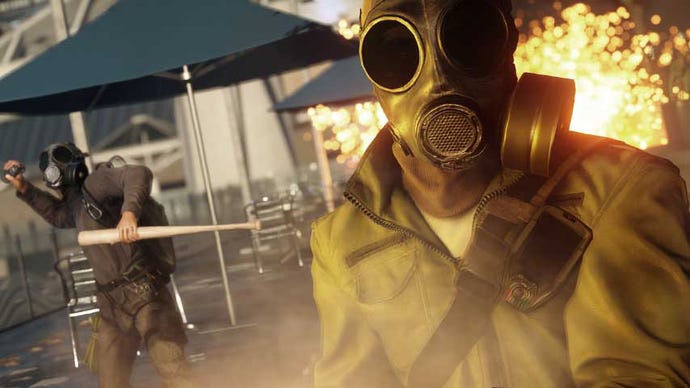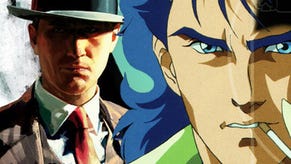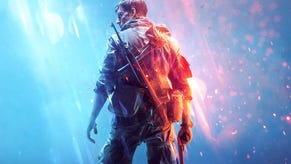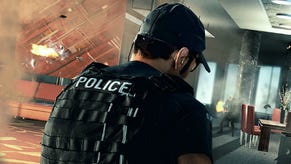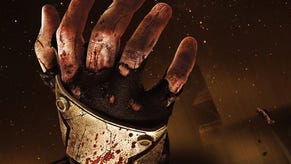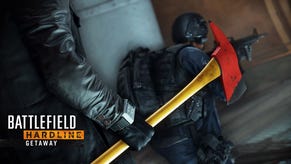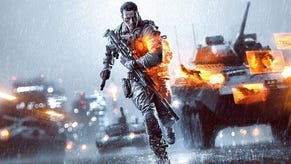Battlefield: Hardline replacing Dead Space - what's going on with EA?
Battlefield: Hardline follows just one year after Battlefield 4, and Dead Space is nowhere to be seen. Is this indicative of wider changes in EA's approach to triple-A?
I want to talk about EA for a minute.
I've made no secret of the fact that I'm pretty fond of EA. It makes a lot of my favourite games. Its executives are rad as heck. It is one of the most diverse employers in games, and given how homogenous the industry is, that's really worth celebrating.
I watch what EA does with avid interest and the last few years have been fascinating. EA had a pretty tough time of it last generation thanks to the huge leap in development costs of the 2000's transition and the growing importance of non-traditional businesses. The end result of this, from our perspective, was the closure of multiple studios, increasing emphasis on games-as-service and alternate revenue streams like DLC and microtransactions - and the exit of John Riccitiello, a man who had steered the ship through these troubled waters.
I miss Riccitiello. He was pretty fun, for a CEO, and while he was helmsman EA's message was always clear: ramp up the digital side of things, double-down on EA's talented studios, and keep building and capitalising on a diverse portfolio of IP. He was also a champion of Dead Space, a franchise which has a lot of significance for me personally.
Riccitiello's message was always clear: ramp up the digital side of things, double-down on EA’s talented studios, and keep building and capitalising on a diverse portfolio of IP.
Dead Space 2's launch party was the first event I ever attended as a VG247 staffer, and around this time Riccitiello made an appearance at an investment conference. Listening to him speak for the first time, I heard the same messages I would hear from him right through to his resignation. He copped to EA's failures in the years before, and talked up his vision for its future: games as service, yes, but with the understanding that this digital dollar dream must be based on a line up of great games.
At the same conference, Riccitiello said that Dead Space was one of EA's most important franchises. The second game saw 100% sell-through growth on the original in its first few weeks, and Riccitiello predicted a bright future for it - while acknowledging the time investment required to reach hit status. "It will probably take Dead Space 3 to get into that 5 million core," he said.
While investors were initially keen on Riccitiello's game-focused approach, they changed their mind. In the end, Riccitiello left EA because investors were unhappy with the company's turnover. The publisher wasn't making enough money to satisfy them. That's something to think about when you complain about EA's less salubrious tactics, isn't it? That the executive who repeatedly said that great games were the foundation of the company's future has been forced out for not making enough money by those who hold its pursestrings?
From Dead Space to Battlefield: Hardline
Dead Space 3 made some changes to the series formula to date and fans were, predictably, not super happy about it. The problem with genres like horror is that they don't sell; they don't have the "5 million core" appeal that is required thanks to the incredible costs of triple-A development. So Dead Space, like any franchise aiming for longevity, began to metamorphose. This naturally puts off those who loved the original premise, and doesn't necessarily pull in a slice of the required Call of Duty crowd.
Maybe EA was wrong to make the changes it did, or to push out a sequel so quickly - but it's unlikely another core horror Dead Space game would have sold well enough to justify the ongoing investment in the franchise. We'll never know for sure, but we do know that Dead Space 3 didn't hit its sales targets, and there's been no word of a Dead Space 4 beyond a vague promise that there's "absolutely" a possibility of it happening.
Of course, that doesn't mean one isn't in the works, as EA hasn't officially put the series on hiatus (as it did with Medal of Honor, for example), but developer Visceral Games is working on something else now - Battlefield: Hardline.
Visceral Games - formerly know as EA Redwood Shores - is an odd studio. Prior to Dead Space it had never worked on an original IP, and has been something of a jobbing team, proving itself with licensed games. While the team is undoubtedly stuffed with talent, I think it's worth remembering that its second original property, Dante's Inferno, went down like a cement pancake, and that it was behind Army of Two: The Devil's Cartel, which - well. There's probably a reason it exists, but we don't know what that reason is unless EA needed to keep the studio occupied while it found something to replace Dead Space with.
That "something" - for now - is Battlefield. According to the official account, Hardline is happening because Visceral boss Steve Papoutsis really wanted to make a Battlefield game after making friends with DICE's Karl-Magnus Troedsson. Visceral produced Battlefield 3's End Game DLC to prove it had the chops, and EA Studios executive vice president Patrick Söderlund gave his blessing for the project.
The key takeaway message of this anecdote, which has been repeated to several sites, seems to be: Battlefield has not been annualised, and Visceral is not going to work on another team's IP forever.
That's comforting, because if Medal of Honor and Battlefield 4 have taught us anything it's that EA throwing resources at yearly shooters is not a good strategy for taking a bite of the Call of Duty annual shooter pie. And also because it means EA hasn't necessarily decided to give up on trying new things - young properties, niche or cross-genres - in favour of only backing big "safe bets" like first-person multiplayer shooters.
I want to believe
I really, really want to believe this delightful anecdote of two mates dreaming up a project together which happens to fit in with current industry trends (multiplayer shooters, annual releases), because the alternative is grim. The alternative is an EA that really only cares about making the big bucks as quickly and efficiently as possible, with no thought for the future of the industry and the artform, which needs regular injections of bold new ideas to flourish. That's not the EA I love.
For many gamers, the idea of a radically different EA is probably quite appealing. EA is one of the largest publishers in the business, and that alone means it's going to cop a lot of flack. Some of this criticism is no doubt deserved even if EA's excesses - Dungeon Keeper's microtransactions, for example, or various DLC policies - are industry standard elsewhere.
I want you to remember that EA deserves a fair amount of credit, too. There was a time when it and Activision were comparable businesses, but while Activision has knuckled under the costs of triple-A development to reduce its portfolio again and again, EA has fought back against the pressure, investing in the future by continuing to diversify, by pushing new IP and new takes on old formulae (Ubisoft and Take Two have also stood firm).
Without EA we wouldn't have Mass Effect and Dragon Age, both of which were risky prospects, and if you are equanimous about the prospect of a world with BioWare games then we probably have a fundamental disagreement about values and should shake hands and part ways now. Without EA we wouldn't have Battlefield, which, broken as the latest one is, is still one of the best core shooter franchises, and trying to do things something Call of Duty doesn't - and that's important.
I’m dismayed by how hit-driven the games industry is, squeezing mid-tier games and publishers out until the market is dominated by a small number of releases. I don’t want the glorious triple-A experiences I love to whittle down to “this year’s shooter” and “this year’s open world game”.
The list goes on, but I'm not really interested in getting into an argument about whether the games industry would or wouldn't be better off without EA. EA is what we have, for better or worse, and I believe it's genuinely trying to be better, as much as any huge sprawling corporation can, and still make money in a business that ran into a wall a few years ago and is still putting the pieces back together.
I don't really have any particular point or argument to make with this feature. I'm dismayed by how hit-driven the games industry is, squeezing mid-tier games and publishers out until the market is dominated by a small number of releases. I'm sure indies will rise to provide alternatives, but while I love the artistic visions and creative choices I discover in indie games, I don't want the glorious triple-A experiences I love to whittle down to "this year's shooter" and "this year's open world game". If EA becomes another hit-focused Activision, providing something great but not necessarily encouraging growth and diversity, how long will it be before Ubisoft and Take Two follow?
It'll be a few years before we see how well EA has weathered the console transition - it invested a lot, but it's certainly seeing returns - and how its executive shuffle works out both for shareholders and gamers. For now, we can only cross our fingers and hope that the publisher continues to work to its strength: a diverse portfolio of IP catering to all sorts of gamers.
